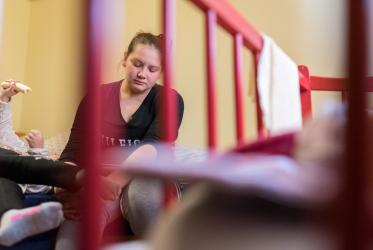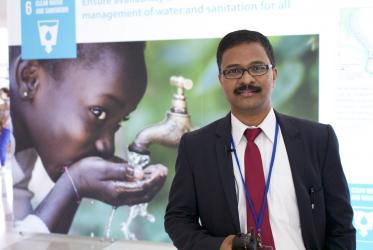Displaying 1 - 11 of 11
08 September 2022
Rethinking Ecological Relationships in the Anthropocene era
11 - 13 February 2021
Churches should use their voice on climate change
26 February 2020
WCC well-represented in Religions for Peace leadership
07 October 2019
G7 must address famine
22 May 2017






